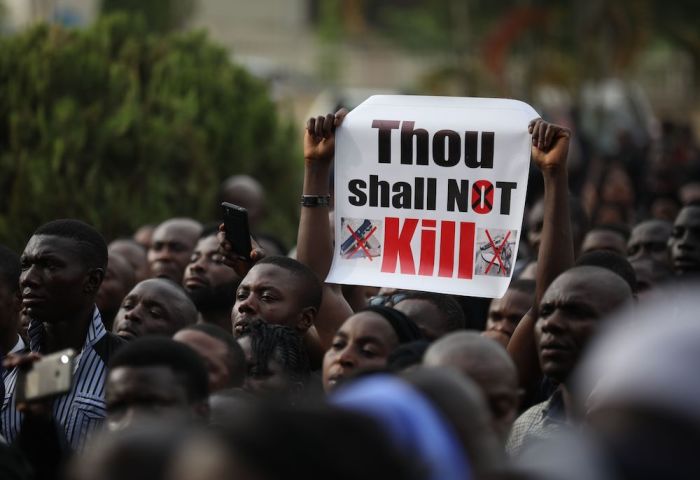Nigerian Christian killed in Fulani ambush attack as violence skyrockets

Suspected Fulani extremists murdered a Christian man in an ambush-style attack as he and two others walked home from work.
According to the Emancipation Centre for Crisis Victims in Nigeria, Justine Patrick was 25 when he was killed earlier this month.
He was walking home from work with his coworkers Daniel Gyang and Sele Dung through some maize fields about an hour before sunset on Oct. 14, Gyang said. Patrick walked behind Gyang and Dung.
“We never knew that a group of seven Fulani had already ambushed us,” Gyang said.
The attackers rushed from the bush, raising sticks, machetes and knives, Gyang said. Before he could react, they grabbed Justine and began stabbing him as Gyang and Dung fled.
“We started screaming and people who were relatively nearby rushed for our rescue,” Gyang said.
His picture shows Patrick as a young man with a smiling face and lean build. He was buried on Oct. 15.
Nathan Johnson, the Africa regional manager for Christian advocate group International Christian Concern, said he doesn’t know why Patrick was murdered, but he suspects it had to do with his faith.
“Farmers aren’t usually carrying anything of value, so they probably attacked him because he was a Christian,” Johnson told The Christian Post. “'Justine Patrick’ is clearly a Christian name. In Nigeria, if you’re a Christian, you have a Christian name. If you’re a Muslim, you have a Muslim name.”
The killers likely planned the attack and knew who Patrick was, Johnson said. Sometimes local people tell visiting Fulani militants who to attack.
“Not all of the Fulani are involved in these attacks,” he said. “It’s specific militant sects.”
The Nigerian government will likely not find and punish his killers, said Johnson. The violence that plagues Nigeria’s Middle Belt region between the Christian south and the Muslim north is an embarrassment the nation’s leaders prefer to ignore.
“The Nigerian government has shown that they care nothing for the deaths of civilians like Justine. There have been hundreds of attacks like this in 2020 alone,” he said. “Thousands of people have died at the hands of extremists groups such as Boko Haram and the Fulani militants. The Middle Belt has what we call the Fulani militant crisis.”
Nigeria’s cattle-herding Fulani tribe are almost all Muslims, Johnson said. They once traveled into the fertile Middle Belt after local farmers had harvested their crops to graze their cattle on the leftover fields. The manure their herds left behind would help fertilize the ground.
Because the farmers and the Fulani use the same land to make a living, there have always been conflicts, Johnson said. But recently, the violence has skyrocketed.
International Christian Concern’s statistics count 600 murders by Fulani tribesmen so far this year.
“It’s definitely a different level of violence now. Entire villages are wiped out,” he said.
Patrick’s murder was probably unrelated to Nigeria’s recent End SARS protests, Johnson said. Ambush attacks often happen in Nigeria.
To help Christians in Nigeria’s Middle Belt, Americans can tell their representatives in Congress to pressure Nigeria’s government, he said. People can also donate to Persecution.org’s initiative to build farms in Nigeria, so families who have lost loved ones to Muslim extremist violence can support themselves.
“Everybody’s heard of terrorist group Boko Haram,” Johnson said. “People need to understand that the Fulani crisis is probably the bigger issue for Christians in Nigeria. They’ve killed more people than Boko Haram in the last few years.”
Nigeria ranks as the 12th worst country in the world when it comes to Christian persecution, according to Open Doors USA’s 2020 World Watch List.
Human rights groups and bodies like Jubilee Campaign and Christian Solidarity International have issued warnings stating that the violence suffered by Christians in Nigeria at the hands of radical herdsmen and Islamic extremists is reaching the level of genocide.





























